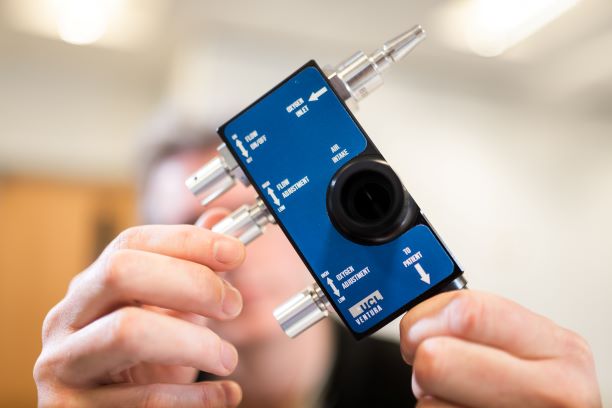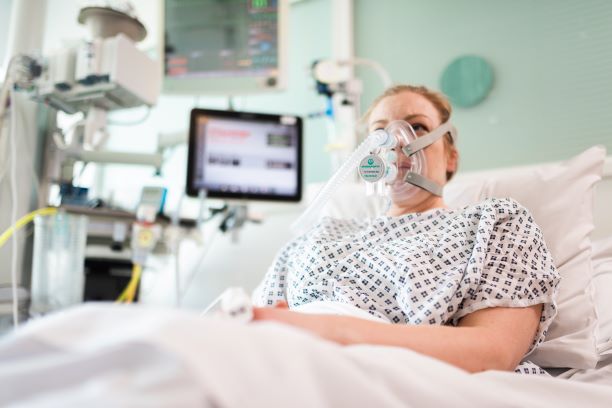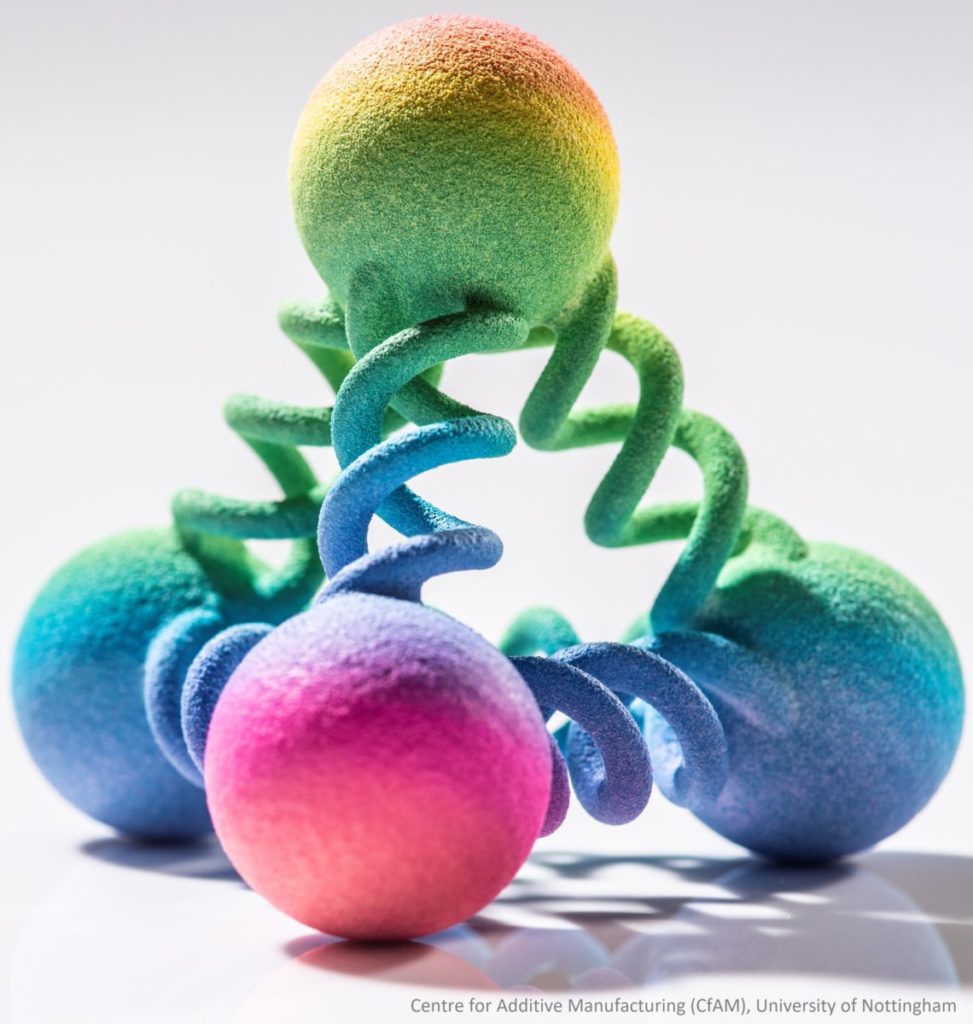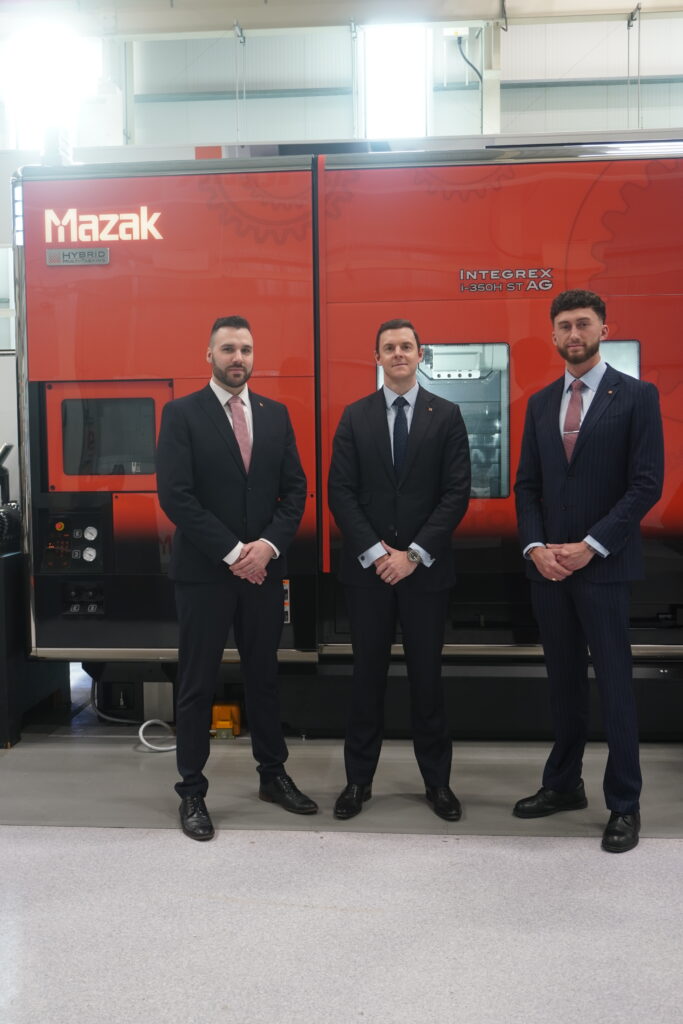GTMA Medical Cluster stepping-up to meet the challenge
Estimated reading time 5 minutes
NHS statistics quoted by The Kings Fund identify the UK medical budget for consumables and capital equipment above £100Bn annually. This figure includes a range of products including PPE monitoring equipment, beds, operating theatre supplies. It is a budget figure not including the current huge spike in demand driven by the COVID-19 pandemic.
GTMA member companies are involved in the supply chain for the entire range of medical products and responding to the spike in demand in different ways. Two major areas of supply activity have focussed on ventilator/breathing devices and PPE (Personal Protection Equipment).
Ventilators

This generic term covers ventilators and other non-invasive devices assisting breathing. The GTMA Cluster support for the UCL CPAP device developed in the UK helped get these units made and the design has now been licensed globally to more than 26 countries.
PPE
The health services across the UK employ more than 150,000 clinical staff. During the current pandemic the need for PPE has set a national (and international) challenge. Providing multiple sets of PPE for each of these workers through a single shift sets the demand for up to 5 million separate items every day including gloves/face mask/body covering/hair covering. This sets the monthly target around 140 million pieces of equipment, 1 Billion pieces consumed in 7 months. The UK capacity to produce this quantity of product falls well short of the demand. We have seen the Additive Manufacturing (AM) community switch over to making face mask products to meet some of the shortfall, larger manufacturers repurposing their operations to supply PPE and componentry into medical supply sector. Going forwards the UK and other governments will be compelled to secure a portion of their requirement for all types of products as a reshoring priority, a significant opportunity for investment in tooling to meet this medium and long term demand.

Accessing supply chain opportunities – Direct Engagement with the NHS
Hospital procurement policy in the UK under normal conditions follows a strict protocol, managing three phases of total lifecycle management. The beginning phase of the lifecycle is the value analysis process where hospitals determine the best value products to buy. The middle phase is utilization management where hospitals control their in-use cost. The last phase of the lifecycle is where they economically and ecologically dispose of the products. These are not ‘normal’ times and the NHS has adopted a streamlined process to increase product flow.
The direct supply chain to the NHS is managed online through www.supplychain.nhs.uk . They are running a series of webinars through the web portal; it is necessary to register your company details to access features.
During the spike in demand caused by the COVID-19 pandemic a dedicated portal for PPE has been set up at https://www.ppe-dedicated-supply-channel.co.uk/ which lists full details of what is urgently required (tel 08008766802). The website also provides full product visibility including country of origin, a clear statement regarding our over-dependence on global sourcing. PPE products include the following items: –
- Aprons
- Body Bags
- Clinical Waste Bags
- Examination Gloves
- Eye Protection – Glasses & Visors
- Face Masks Type IIR
- Respirators FFP2
- Respirators FFP3
- FiT Testing Kits & Solutions
- General Purpose Detergent
- Gowns
- Hand Hygiene
- Swabs and Test Kits
From these 15 classifications of products there are no declared UK suppliers for 8 of them (Aprons, Body Bags, Eye Protection, Respirator FFP2, Fit test kits, Fit test solution, Gloves, Gowns). Of these 8 products there are some European (EU) supplies but predominantly the sources are in the far East. This highlights the challenge for UK (and EU countries) trying to replenish the depleted stock of PPE. This is an opportunity for UK manufacturing companies to get tooling and manufacturing systems in place to get into this list for the current and longer term requirement for product.
GTMA Cluster Activities
We are actively engaged with several medical initiatives and seeking to identify opportunities for GTMA member companies can supply products and services to meet the escalation in demand. We will update Cluster members on progress.

We have identified an initiative launched by the Birmingham Chamber of Commerce seeking to quantify any reserves or capacity to produce PPE in the West Midlands region. This can be accessed at ppe@westmids.org.uk , this is being led by the Mayor of the West Midlands, Andy Street, and funding is available to help participants meet specific demands.
We are also analysing the UK-based Additive Manufacturing (AM) activity to assess the capacity/constraints and where a better integrated supply chain can relieve bottlenecks getting final products into the NHS speedily. The GTMA is well placed to fulfil the ambition to fulfil the ongoing demand.
This pandemic has highlighted the challenge for UK manufacturing to be able to respond to spikes in demand, requiring an agile and resilient manufacturing strategy. Alongside a fully integrated supply chain network we recognise the need to empower cross-industry-technology-transfer to shift focus in response to requirements. These actions will allow an increase in reshoring of manufacturing to the UK, shorter visible supply chains and fast response.
Contact Alan Arthur, Chief Technical Officer on alan@gtma.co.uk or call 0121 392 8999


